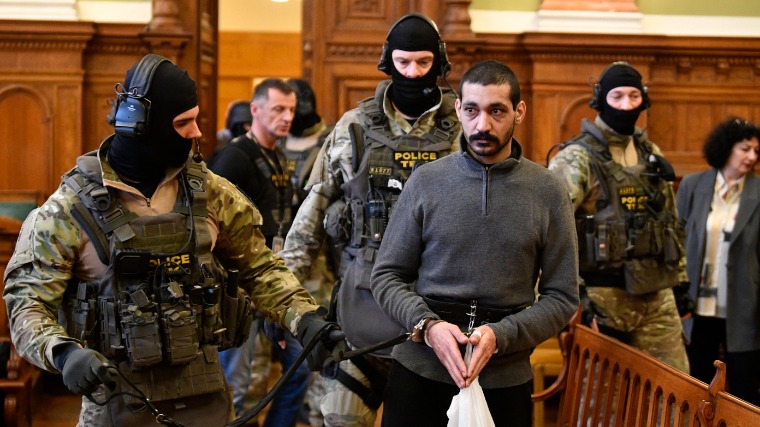On Monday, the Capital Court sentenced Hassán F., a Syrian man and a former soldier of the Islamic State, to life imprisonment for a crime against humanity committed in a criminal organization and as an accomplice. The accused cannot be released on parole either, the district court announced on Monday.
The first-instance verdict of the Metropolitan Court last December was changed by the district court to the extent that it clarified the description of the crime committed in a criminal organization, ruled out the possibility of parole for the accused, and supplemented and corrected the court's provisions on additional issues. In other respects, the judgment of the first instance court was upheld, the announcement reads.
They added: the accused was permanently expelled from the territory of Hungary. According to the facts of the first-instance proceedings, the young man died in May 2015 during the civil war in Syria
participated in at least two murders, including a public beheading.
According to the data of the procedure, F. Hassan became the commander of a smaller armed group of the Islamic State and identified with the goals of the terrorist organization.
The terrorist organization systematically intimidated the population of the areas under its control with executions and torture, and punished and destroyed people and communities that did not join the organization and were considered "enemies of Islam" according to the laws they introduced, using deterrent methods. In May 2015, the accused was assigned the task of occupying a Syrian town, as part of this he prepared a "death list" of those who did not identify with their goals, and then he and a friend beheaded the religious leader of the settlement, the imam, in the main square of the town. .
Hassan and his companions forced the population of the settlement, the family members of the future victims, including women and children, to watch the execution and ask for forgiveness in order to stay alive.
The district court announced on Monday: in his appeal against the first-instance verdict, the prosecutor requested that the second-instance court state that the possibility of parole is excluded. The accused and his lawyer appealed for acquittal. In the second-degree proceedings, the defendant admitted that he was a member of the Islamic State.
The sentencing panel added to the justification of the first-instance judgment to the extent that it connected only one execution - also recorded with a mobile phone - to the person and "active actions" of the accused, while it linked the other deaths that were the subject of the accusation to the Islamic State as a criminal organization, of which the accused was also a member. they added.
For committing a crime against humanity, the court of first instance legally sentenced the accused to life imprisonment,
however, he was wrong when on the possibility of parole .
Pursuant to the mandatory provisions of the law, the defendant must be excluded if he commits the crime against humanity in a criminal organization, therefore the sentencing panel changed HF's sentence to actual life imprisonment.
The man was arrested in 2018 by the Hungarian authorities in Budapest, at Liszt Ferenc Airport, with false documents, and in the meantime he was already convicted of human smuggling and other crimes.
MTI
Hassán F. in Budapest (Photo: MTI/Zsolt Szigetváry)












